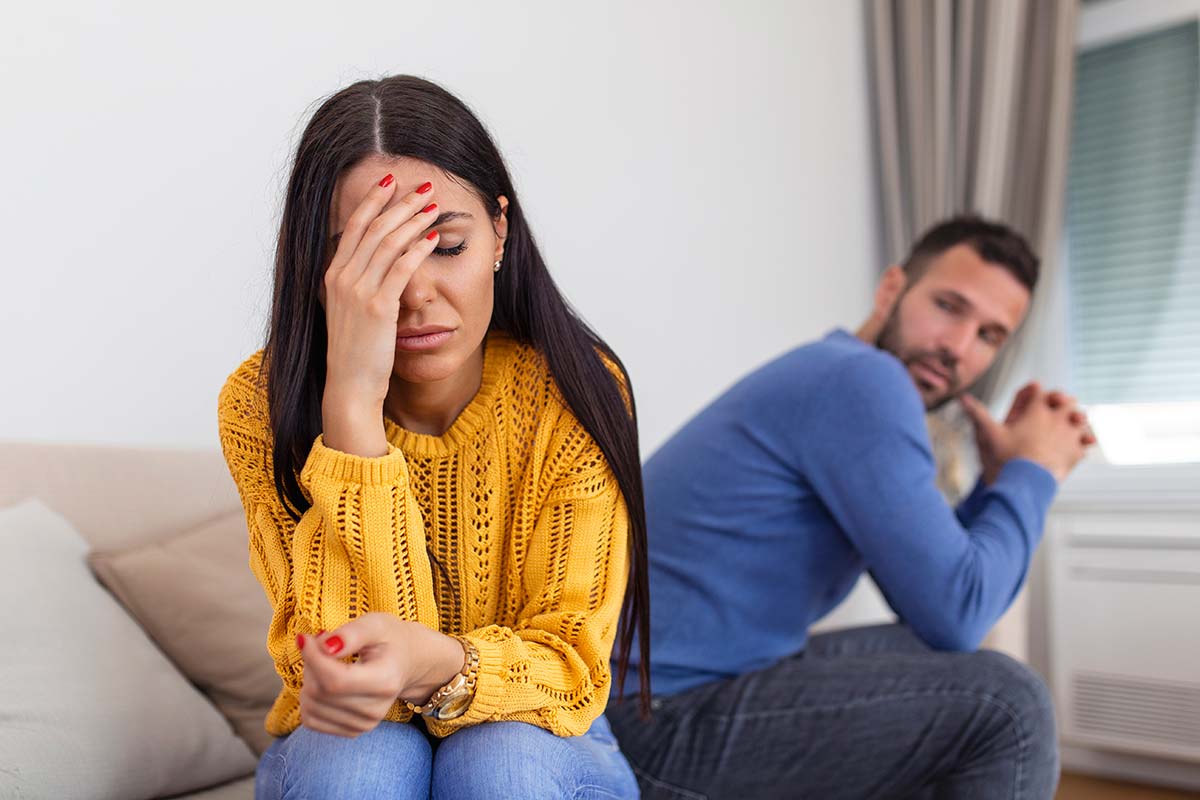Loss of libido in men & women

Low libido (low sex drive) is a decrease in the frequency and/or intensity of sexual desire/drive that you once had. It affects both men and women and can be temporary or long term. It’s also common to experience a drop in sex drive more than once during your life. If you are unhappy in a relationship or you have become overfamiliar with your partner and feel a degree of erotic dissatisfaction, this can cause a negative effect on your sex drive.
An unexpected loss of libido especially when it lasts for a long time or keeps recurring can indicate an underlying personal or medical cause, or it may be due to lifestyle factors, which can be upsetting to both partners. If it causes stress, anxiety or affects a person’s overall well-being, see a doctor to discuss any underlying causes and possible medical or psychological treatments.
What causes low libido?
Libido naturally varies from person to person and can fluctuate throughout your life due to:
- Mental health conditions: stress, depression, anxiety, history of sexual trauma, fatigue, low self-esteem
- Relationship issues: lack of trust, conflict, and poor communication
- Medical conditions: cancer, kidney disease, diabetes, headaches, heart diseases, obesity, osteoporosis, high blood pressure
- Alcohol, smoking or recreational drugs
- Medications : anti-depressants, antipsychotics, medication for high blood pressure, depression, seizures
- Age
For women specifically:
- Hormonal changes, perimenopause and menopause, pregnancy, childbirth or breastfeeding
- Infections such as vaginal yeast infections or urinary tract infections
- Reproductive health conditions such as endometriosis, premenstrual syndrome (PMS) and polycystic ovary syndrome (PCOS)
- Painful sex (dyspareunia), vaginal dryness, vaginismus or problems reaching orgasm
- Contraception
For men specifically:
- Low testosterone
- Sexual dysfunction such as erectile dysfunction, premature ejaculation or delayed ejaculation
Management and Treatment
The treatment for low libido depends on the cause. Several treatment options are available. Depending on the cause, it may be most beneficial to see one or more of the following medical specialists: general practitioner, sex therapist, psychologist, gynecologist, urologist, endocrinologist.
Since a decrease in sex drive has several possible causes, a healthcare provider will ask questions about your symptoms, medical and medication history, sexual history, relationships, stress and thoughts about sex.
If medication is reducing your sex drive, a doctor will review your medication and switch your prescription to something less likely to affect your libido.
Learning about sex from trusted sources, being open and honest with your partner about your sexual desires, implementing healthy lifestyle change, such as nutritious diets, sleep, reduced alcohol, losing weight, stress management and managing existing health conditions will assist to get back to your normal libido.
Various therapies such as sex therapy, couples therapy, individual psychotherapy and hormone therapy too will help. Psychosexual counselling is a form of relationship therapy where you and your partner can discuss any sexual or emotional issues that may be contributing to your loss of libido. Talk therapy or sex therapy can help you deal with trauma, improve your self-esteem, and strengthen your relationship with their partner. Cognitive behavioural therapy and mindfulness can be beneficial for some women with sexual dysfunction, such as low sex drive as it can focus on pleasure and engagement and reduce negative thoughts about sex.
Talking about a low sex drive should not cause embarrassment. It is a common experience and can be a symptom or side effect of many different factors. While it can feel awkward or uncomfortable to talk to a doctor about your sex life, know that sex is a natural and important part of your life and seek help when in need.
.png)



